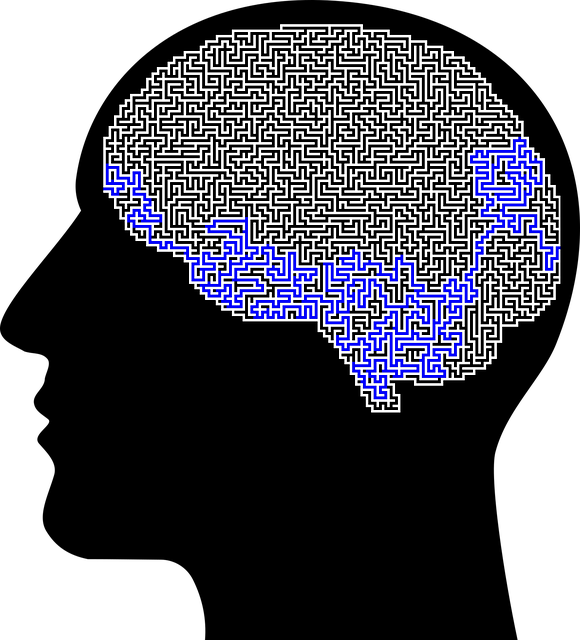Lakewood Developmental Disability Therapy offers tailored mental wellness programs for individuals with developmental disabilities, focusing on stress management, emotional regulation, and self-awareness through evidence-based interventions. Evaluating these programs requires a comprehensive toolset including standardized assessments, surveys, interviews, and observation techniques. Direct observation, enhanced by cultural sensitivity training, is a cornerstone method. Client and caregiver feedback are crucial for assessing success, offering insights into personalized treatment preferences. Robust evaluation methods, particularly longitudinal tracking, monitor participants' progress over time, allowing for data-driven strategy adaptation and demonstrating program effectiveness.
“Uncovering the effectiveness of mental wellness programs for developmental disabilities is crucial, especially in tailored therapies like those offered at Lakewood Developmental Disability Therapy. This article explores comprehensive evaluation methods essential for measuring the success of such programs. From direct observation and client feedback to longitudinal tracking, we delve into practical tools that guide improvements. Understanding these assessment techniques empowers professionals to navigate the complex landscape of mental health support, ensuring optimal outcomes for individuals with developmental disabilities.”
- Understanding Mental Wellness Programs for Developmental Disabilities
- Assessment Tools for Program Evaluation: A Comprehensive Look
- Direct Observation and Documentation: On-Site Evaluation Techniques
- Client and Caregiver Feedback: The Power of Subjective Data
- Longitudinal Tracking and Outcomes Measurement: Ensuring Continuous Improvement
Understanding Mental Wellness Programs for Developmental Disabilities

Mental wellness programs specifically tailored for individuals with developmental disabilities are vital to enhancing their overall well-being. These programs recognize that managing mental health alongside developmental challenges is a nuanced and complex process. At Lakewood Developmental Disability Therapy, professionals design individualized interventions to address specific needs, focusing on stress management techniques, emotional regulation skills, and fostering self-awareness. The goal is to empower individuals with strategies to navigate life’s challenges, improve coping mechanisms, and ultimately boost their mental health awareness and resilience.
By integrating evidence-based practices, these programs create a supportive environment where participants can learn and practice healthy habits. This holistic approach considers not just the individual’s cognitive needs but also their social and emotional well-being, ensuring that they receive comprehensive care. Mental wellness initiatives in this context aim to reduce stigma, promote understanding, and encourage open conversations about mental health concerns specific to developmental disabilities.
Assessment Tools for Program Evaluation: A Comprehensive Look

When evaluating mental wellness programs, such as those offered by Lakewood Developmental Disability Therapy, a robust assessment toolset is essential to gauge success and identify areas for improvement. These tools encompass various methods tailored to different aspects of program effectiveness. Standardized assessments, surveys, interviews, and observation techniques provide quantitative and qualitative data, offering a comprehensive look at client outcomes and provider performance.
For instance, risk management planning for mental health professionals plays a crucial role in ensuring the safety and well-being of both clients and practitioners. Similarly, healthcare provider cultural competency training and emotional intelligence assessments can reveal biases and strengths that impact service delivery. By incorporating these diverse evaluation methods, mental wellness programs can foster inclusive, effective care tailored to individual needs.
Direct Observation and Documentation: On-Site Evaluation Techniques

Direct observation is a powerful evaluation method employed in mental wellness programs, particularly in settings like Lakewood Developmental Disability Therapy. Therapists use this technique to assess clients’ behaviors, interactions, and overall emotional states within their natural environments. By actively participating and observing, professionals can gather valuable insights into individuals’ progress or challenges. This involves not just watching but also documenting specific instances of client engagement, social interactions, and any changes in behavior over time.
This on-site evaluation approach is significantly enhanced by incorporating cultural sensitivity in mental healthcare practice. Therapists are trained to recognize and respect diverse cultural norms, ensuring that observations remain unbiased and accurate. Additionally, organizing stress management workshops within these programs can facilitate emotional well-being promotion techniques. These workshops teach clients practical skills for coping with stress, fostering a sense of empowerment and self-care.
Client and Caregiver Feedback: The Power of Subjective Data

Client and Caregiver feedback play a pivotal role in evaluating the effectiveness of mental wellness programs, especially for individuals with developmental disabilities like those served by Lakewood Developmental Disability Therapy. Subjective data from clients and their caregivers offer unique insights into the program’s impact on emotional well-being, quality of life, and overall satisfaction. This qualitative feedback is invaluable as it captures personal experiences, perceptions, and improvements that may not be readily measurable through traditional quantitative methods.
By incorporating client and caregiver narratives, mental health professionals can gain a deeper understanding of what works best for each individual. For instance, some clients might express significant relief from anxiety symptoms, while caregivers could highlight improved communication and decision-making skills observed in their loved ones. This rich information guides therapists in refining the program’s Crisis Intervention Guidance and Depression Prevention strategies. Moreover, it encourages the integration of therapeutic practices like Mindfulness Meditation, tailored to meet diverse needs, ensuring a more personalized and effective mental wellness journey.
Longitudinal Tracking and Outcomes Measurement: Ensuring Continuous Improvement

Mental wellness programs must employ robust evaluation methods to ensure their effectiveness and continuous improvement. Longitudinal tracking, which involves monitoring participants’ progress over an extended period, is a powerful tool in this regard. By collecting data at various intervals, therapists and healthcare providers can identify trends, measure the impact of interventions, and adapt strategies accordingly. This ongoing assessment allows for personalized support tailored to each individual’s unique needs, especially those with developmental disabilities as highlighted by Lakewood Developmental Disability Therapy.
Outcomes measurement plays a pivotal role in this process. Evaluating specific mental health outcomes, such as stress management or mood regulation skills, enables the program to quantify improvements and demonstrate success. These measurements can be linked directly to the interventions provided, providing valuable insights for further development. Moreover, they foster a culture of evidence-based practice, where decisions are data-driven, ensuring that the healthcare provider cultural competency training is effective and aligned with best practices in mental wellness support.
Evaluating mental wellness programs for developmental disabilities is a multifaceted process that leverages various methods, from direct observation and client feedback to longitudinal tracking. By employing these comprehensive evaluation techniques, such as those explored in relation to Lakewood Developmental Disability Therapy, programs can ensure they meet the unique needs of their clients. Incorporating subjective data alongside objective measures allows for a holistic understanding of program effectiveness, enabling continuous improvement and better outcomes for individuals with developmental disabilities.














